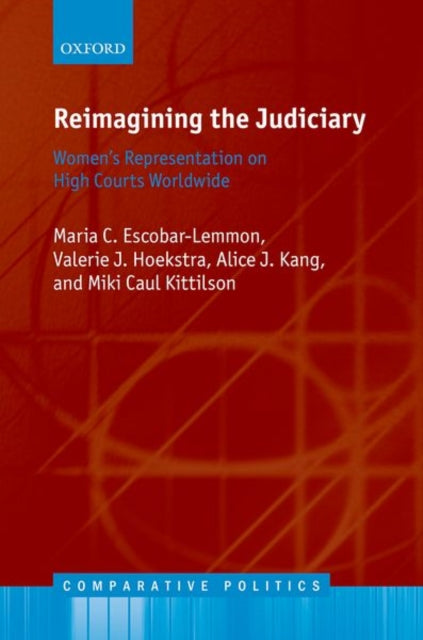
Reimagining the Judiciary: Women's Representation on High Courts Worldwide
 Limited Time Sale
Limited Time Sale$53.65 cheaper than the new price!!
Free cash-on-delivery fees for purchases over $99
Product details
| Management number | 201915403 | Release Date | 2025/10/08 | List Price | $53.65 | Model Number | 201915403 | ||
|---|---|---|---|---|---|---|---|---|---|
| Category | |||||||||
This book examines the factors that facilitate the inclusion of women on high courts, while recognizing that many courts have a long way to go before reaching gender parity. It builds the first cross-national and longitudinal dataset on the appointment of women and men to high courts and provides five in-depth country case studies. The analysis reveals that women are more likely to first appear on their country's high court when traditional ideas about who can and should be a judge erode, and that international treaties, regional emulation, and women's international NGOs play a role in disseminating and linking global norms of gender equality in decision-making.
Format: Hardback
Length: 224 pages
Publication date: 12 October 2021
Publisher: Oxford University Press
This book delves into the factors that promote the inclusion of women on high courts, while acknowledging that many courts still have a significant distance to cover in achieving gender parity. The authors have constructed the first comprehensive cross-national and longitudinal dataset on the appointment of women and men to high courts, aiming to answer the questions of why women began appearing on high courts and where they have made the most significant advancements.
To explore these issues, the authors present five in-depth country case studies, examining the selection of justices to high courts in Canada, Colombia, Ireland, South Africa, and the United States. By employing a cross-national lens and combining quantitative analyses with detailed country studies, the book aims to examine multiple influences across regions and time. The analysis focuses on three sets of explanations: pipelines to high courts, domestic institutions, and international influences.
Through the lens of these explanations, the book reveals that women are more likely to initially appear on their country's high court when traditional notions about who can and should be a judge begin to erode. In certain countries, international treaties, regional emulation, and women's international non-governmental organizations play a crucial role in disseminating and linking global norms of gender equality in decision-making. Importantly, while informal institutions and reliance on men-dominated networks can pose barriers to women's access, women are making substantial strides in their countries' highest courts, particularly where the supply of judges grows and selectors have incentives to select women.
Sustained pressure from advocacy organizations at the local, national, and global levels also contributes to some gains. Comparative Politics is a series designed for researchers, teachers, and students of political science, focusing on contemporary government and politics with a global perspective. Books in the series are characterized by their comprehensive coverage, analytical depth, and accessibility to a wide audience.
Weight: 494g
Dimension: 164 x 243 x 20 (mm)
ISBN-13: 9780198861577
Correction of product information
If you notice any omissions or errors in the product information on this page, please use the correction request form below.
Correction Request Form
















